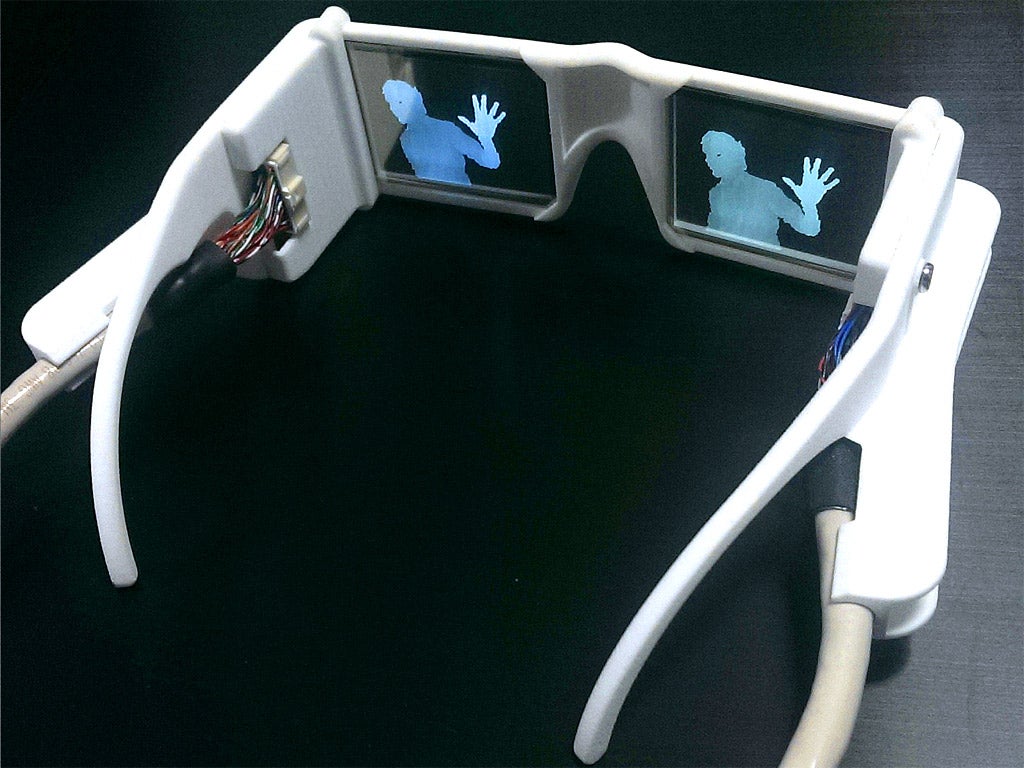Scientist who invented glasses that help blind to ‘see’ wins £50,000 award
Stephen Hicks said that the prize money will be used to develop the glasses further

A scientist who has invented a pair of intelligent spectacles that can help the blind to “see” with simple visual images and descriptions of nearby signs and objects has won a major scientific prize.
Stephen Hicks of the University of Oxford said that the £50,000 prize money will be used to develop the glasses further so that they become a cheap and effective way for partially-sighted people to navigate through public places.
Computer-aided vision has in the past concentrated on the high-tech and expensive use of tiny silicon chips that can be implanted into the eye to provide a stronger visual signal to the light-sensitive cells of the retina.
However, Dr Hicks' device does not involve invasive medical procedures and can be worn on the nose like ordinary glasses, making it simpler, cheaper and safer than chip implants.
The smart glasses use tiny cameras and software to recognise nearby objects and to project them in a simple and intuitive way onto the lenses of a pair of glasses, which act like personal movie screens to the partially sighted.
“My research aim is to improve functional vision for people with severely impaired sight. Over 300,000 people in the UK are registered as blind,” Dr Hicks said.
“We are developing a pair of smart glasses that might be able to help people to use their remaining vision to see and avoid obstacles and enjoy increased independence,” he said.
The idea is that the glasses would help the wearers to recognise everyday objects, such as a bus stop, doorway or personal item, and to identify them as such rather than just highlighting them as potential obstacles.
Cameras embedded into the glasses can project recognisable images onto the glasses or, in the future, convert real text, such as words on a sign, timetable or a bus number, into audible speech, Dr Hicks said.
“This is the beginning of a golden age for computer vision. We are seeing smart recognition technology in everything from cameras and mobile phones to self-driving cars,” Dr Hicks said.
“The latest research enables computers not only to see single objects like faces and words but understand whole scenes,” he said.
The Brian Mercer Innovation prize awarded to the smart spectacles is organised by the Royal Society.
Subscribe to Independent Premium to bookmark this article
Want to bookmark your favourite articles and stories to read or reference later? Start your Independent Premium subscription today.

Join our commenting forum
Join thought-provoking conversations, follow other Independent readers and see their replies